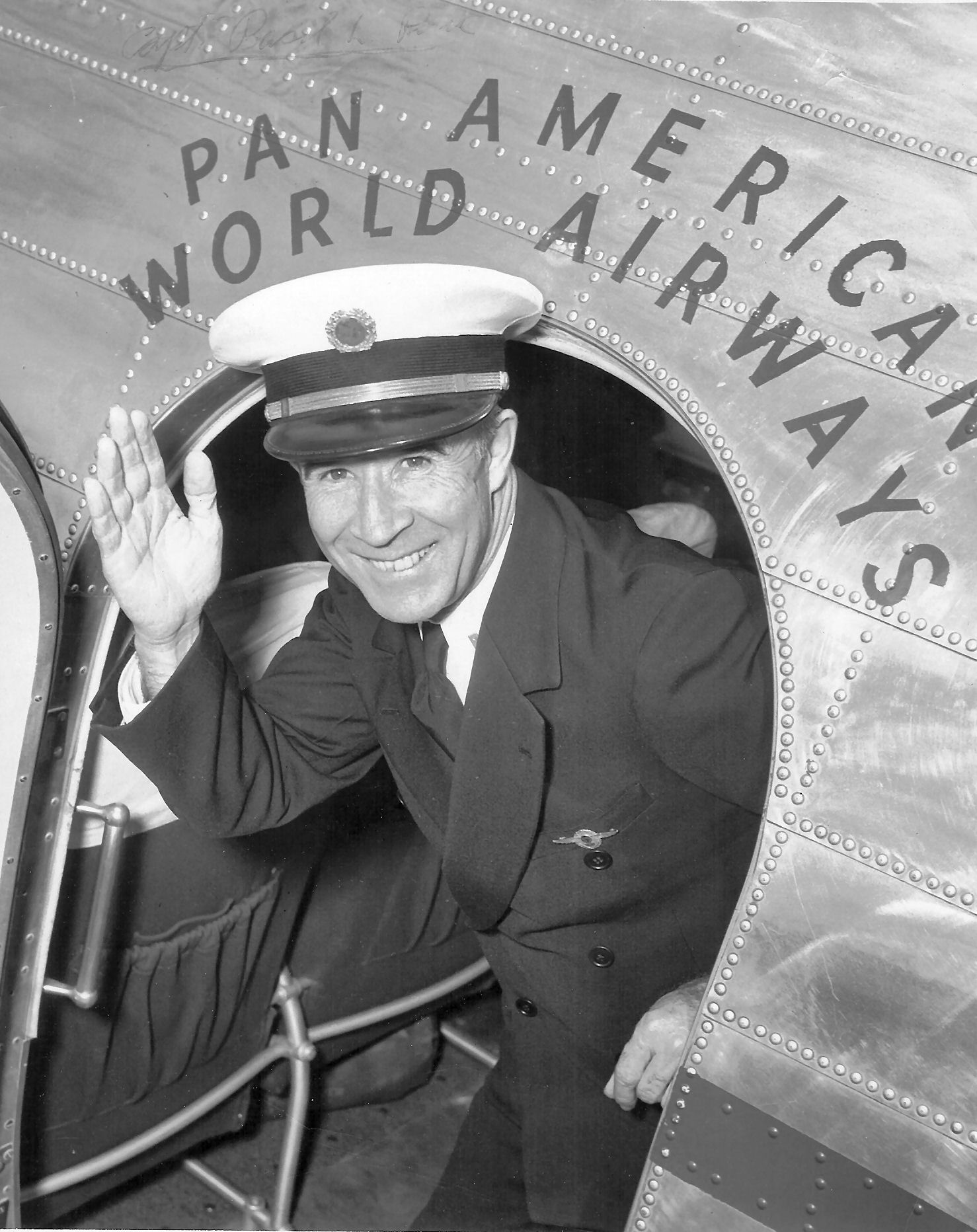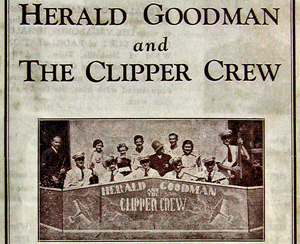
Chapter Updates
<< Back to Chapter Updates
Page | 1 | 2 |
Kate Smith is one of the most beloved singers in United States history. Irving Berlin wrote “God Bless America” just for her, a song which some people prefer over the National Anthem as representative of the U.S. She always included in her long-running radio programs, her own trademark, “When the Moon Comes over the Mountain.”
When pioneer Clipper pilot Basil L. Rowe flew a new cutoff route across Venezuela, he was suddenly confronted with a 9,000 foot bald promontory dead ahead in an area that should have been flat according to his map. As the moon came up over the mountain, he decided to name the previously unnamed and unchartered mountain after Kate Smith because of her signature song. Since Kate Smith possessed a rather full figure and the mountain was certainly a full figure, from that time on, Pan Am pilots could determine their position by Kate Smith. When word reached the singer on her radio program, she held a ceremonial dedication of the mountain. Rowe recounted his experience with the mountain in his book, Under My Wings.
 Captain Basil Rowe steps
Captain Basil Rowe steps
from a
DC-3 in
1946.
After Pan American Airways Clippers began spanning the seas, musician and radio personality Herald Goodman (1900-1974) formed an entertainment troup comprised of a 'Clipper Crew' pictured behind the front of an aviation-themed bandstand. Working and broadcasting out of York, Pennsylvania, the crew consisted of musicians, an acrobatic Coney Island clown cop on bars and trampoline, singers, dancers, and a Spanish cowboy stage act. Goodman was best known for writing such musical hits as 'When It's Lamp Lighting Time in the Valley' and appearing with the Vagabonds and his Tennessee Valley Boys western swing band.
The three men who made up the vocal harmony group, The Vagabonds, were all the sons of ministers so their music tended towards gospel. The Vagabonds have been credited with being the first professional musicians to perform at the Grand Ole Opry (meaning they could read music and did not assume a hillbilly persona) and to bring pop music to it in 1931. Goodman also was instrumental in creating the first country music publishing and recording business, Old Cabin Music, in Nashville.
 1930s Brochure Cover
1930s Brochure Cover
for Herald Goodman and
the Clipper Crew.